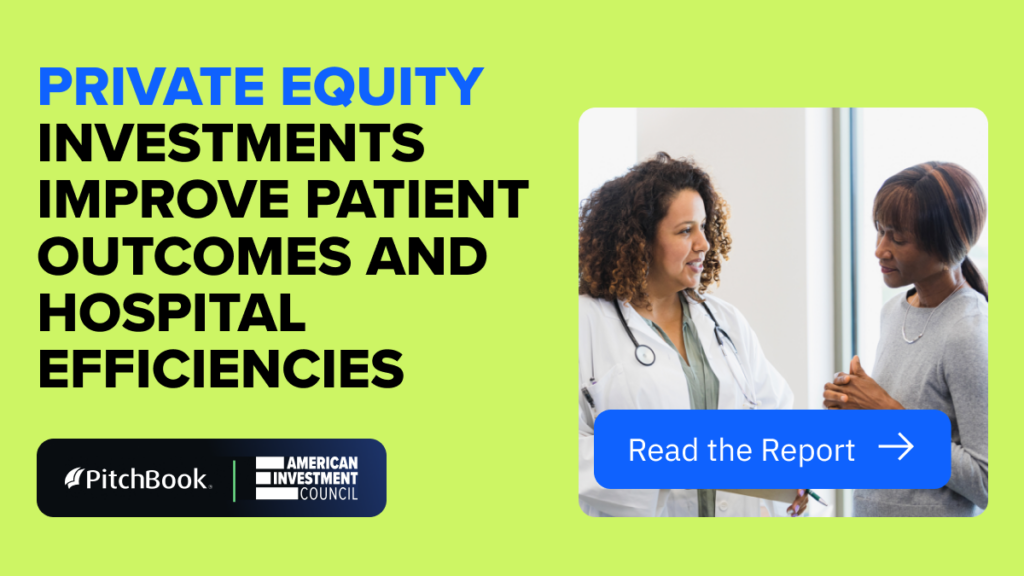Hospitals Depend on Private Equity to Support Better Patient Outcomes and Improve Efficiencies

This week, we’re exploring how private equity investments help hospitals operate more efficiently, bolstering their workforce and increasing patient survival rates.
Improving Positive Patient Outcomes
Research has shown that private equity investments can improve patient outcomes at hospitals.
In fact, researchers at Duke University found that private equity-backed hospitals saw greater declines in both in-hospital mortality and 30-day mortality among heart attack patients compared to non-private equity-backed hospitals. A 2021 study from researchers at the McDonough School of Business and the Indiana School of Business shows private equity-backed hospitals have “better survival prospects and operating profitability.”
In a Reason story from earlier this year, Aaron Brown of New York University explains how hospitals acquired by private equity are able to save patient lives. “Patient mortality, the most important measure, dropped a statistically significant 9 percent in the study group, which represents nearly 500 lives saved,” said Brown.
Private equity investments also expand access to care in rural communities. Private equity-backed hospitals are more likely to serve low-income, rural communities, ensuring that rural residents and their families have access to high-quality, life-saving care.
Alleviating Workforce Shortages in Hospitals
Private equity investments bring the capital necessary to help hospital-based healthcare providers spend more time with their patients instead of on burdensome paperwork and other administrative tasks.
According to researchers at Indiana University and Georgetown University, the “core worker ratio,” or the proportion of physicians, nurses, and pharmacists compared to overall employees, increased at hospitals acquired by private equity firms. Compared to private equity acquirers, non-private equity acquirers cut employment without increasing the core worker ratio and, in some cases, reduced the overall quantity of core workers.
Company Spotlight: Private Equity-Backed InVita Helps Hospitals Collect Blood & Plasma
Riverside-backed InVita provides hospitals and independent blood and plasma centers with software to manage the collection of blood and plasma samples and keep track of tissue and other implantable devices. During COVID-19, when mobile blood drives shut down and there was an enormous shortage of blood across the country, InVita’s product HemaConnect helped integrate blood center-tested antibody results into its product and allowed more people to donate blood. Their software also helped hospital-based blood banks recruit, manage, and schedule those who could donate convalescent plasma and then track the plasma after it was donated.
The first release in this series on medical device innovation can be found here and the second release on urgent care centers can be found here. The latest release on pharmaceutical manufacturers can be found here.
The American Investment Council’s full report on how private equity complements and strengthens quality, affordable health care can be found here.


